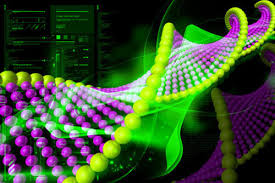Source: genengnews.com
Researchers at the Sanford Burnham Prebys Medical Discovery Institute say that machine learning’s powerful ability to detect patterns in complex data is revolutionizing how scientists diagnose disease and, now, how they discover new drugs.
The Sanford Burnham team has developed a machine-learning algorithm that gleans information from microscope images that allow for high-throughput epigenetic drug screens. They believe that this approach (“Improving drug discovery using image-based multiparametric analysis of the epigenetic landscape”), described in eLife, could unlock new treatments for cancer, heart disease, mental illness, and other diseases.
“High-content phenotypic screening has become the approach of choice for drug discovery due to its ability to extract drug-specific multi-layered data. In the field of epigenetics, such screening methods have suffered from a lack of tools sensitive to selective epigenetic perturbations. Here we describe a novel approach, Microscopic Imaging of Epigenetic Landscapes (MIEL), which captures the nuclear staining patterns of epigenetic marks and employs machine learning to accurately distinguish between such patterns,” the investigators wrote.
“We validated the MIEL platform across multiple cells lines and using dose-response curves, to insure the fidelity and robustness of this approach for high content high-throughput drug discovery. Focusing on noncytotoxic glioblastoma treatments, we demonstrated that MIEL can identify and classify epigenetically active drugs. Furthermore, we show MIEL was able to accurately rank candidate drugs by their ability to produce desired epigenetic alterations consistent with increased sensitivity to chemotherapeutic agents or with induction of glioblastoma differentiation.”
“In order to identify the rare few drug candidates that induce desired epigenetic effects, scientists need methods to screen hundreds of thousands of potential compounds,” said Alexey Terskikh, PhD, associate professor in Sanford Burnham Prebys’ development, aging and regeneration program and senior author of the study. “Our study describes a powerful image-based approach that enables high-throughput epigenetic drug discovery.”
Several medicines that target epigenetic alterations are approved by the FDA for the treatment of cancer, and researchers are working to find additional epigenetic-based therapies. However, drug discovery has been slowed by a lack of a high-throughput screening method, explained Terskikh. Scientists currently visualize epigenetic changes using special dyes and traditional microscopy methods.
In the study, the scientists trained a machine-learning algorithm using a set of more than 220 drugs known to work epigenetically. The resulting method (MIEL) was able to detect active drugs, classify the compounds by their molecular function, spot epigenetic changes across multiple cell lines and drug concentrations, and help identify how unknown compounds work. The scientists used the approach to identify epigenetic compounds that may be able to help treat glioblastoma, a deadly brain cancer.
“Our method is ready for immediate use by pharmaceutical companies looking to develop epigenetic drug screens,” said Chen Farhy, PhD, a postdoctoral researcher in the Terskikh lab and first author of the study. “Industry and academic researchers working on mechanistic studies may also benefit from this method, as the algorithm can detect and categorize epigenetic changes induced by experimental treatments, genetic manipulations, or other approaches.”
Terskikh and his team are already using the algorithm to study epigenetic changes in aging cells, with the aim of developing compounds that promote healthy aging—the single greatest risk factor for disease. This work is conducted in collaboration with Sanford Burnham Prebys professor Peter Adams, PhD. Terskikh said he is eager to broaden the technology from 2D images to 3D videos, which will expand the power of the approach.
